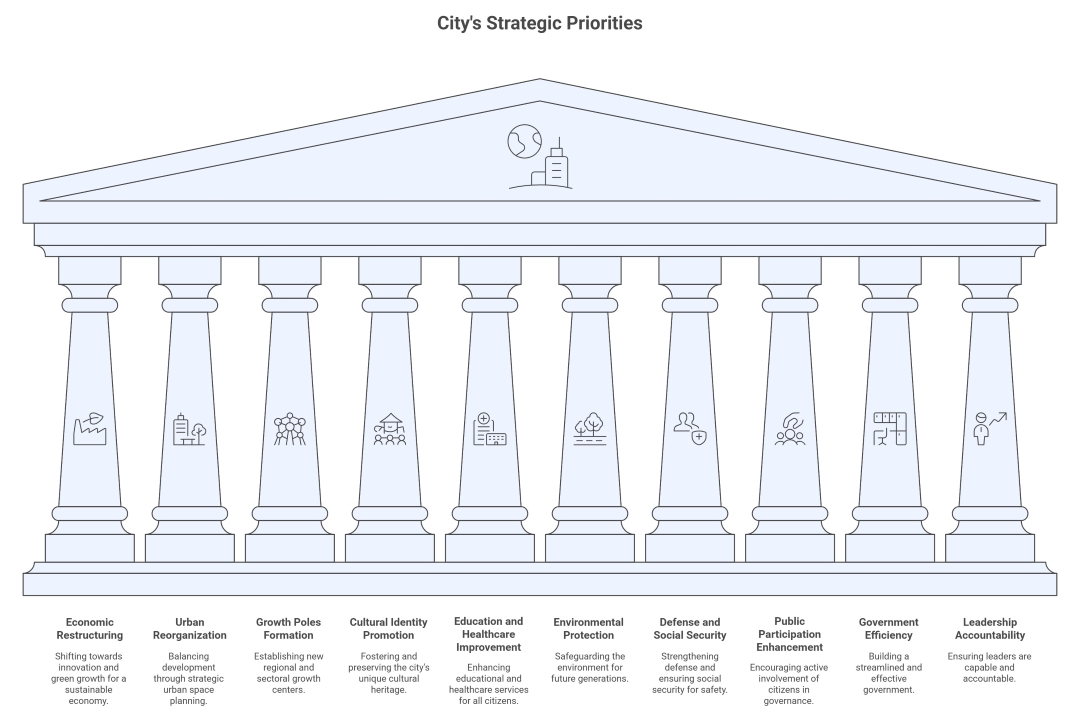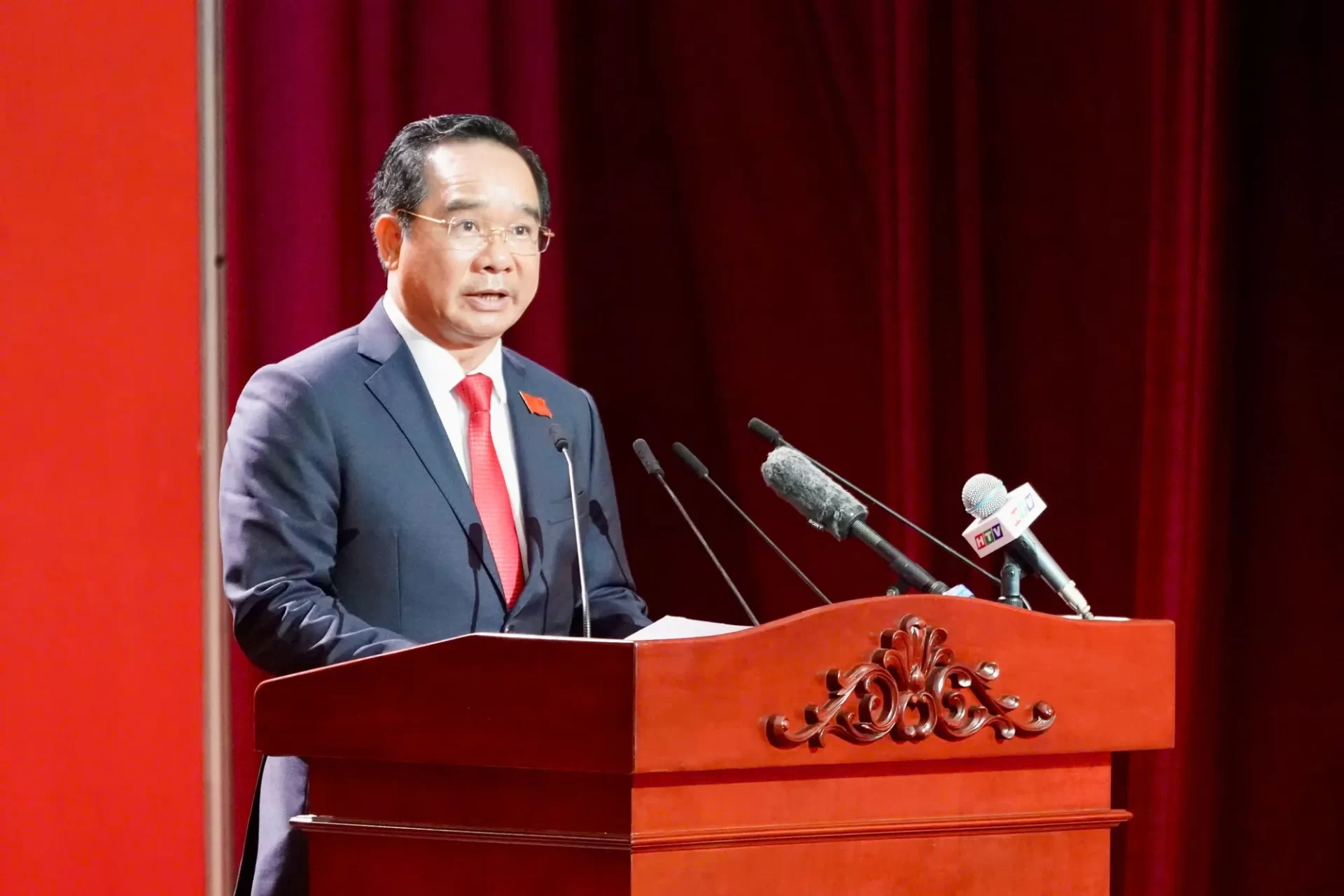HCMC – HCMC plans to pilot a self-governing urban model during the 2025-2030 term as part of efforts to strengthen institutional reforms, upgrade infrastructure, and develop human resources.
The announcement was made at the official session of the first Congress of the HCMC Party Committee for the 2025-2030 tenure, which opened today, October 14. The event was attended by Party General Secretary To Lam, State President Luong Cuong, Prime Minister Pham Minh Chinh, National Assembly Chairman Tran Thanh Man, and other former and current central leaders.
According to Nguyen Van Duoc, deputy secretary of the city’s Party Committee and chairman of the city’s People’s Committee, the city achieved solid results in the 2020-2025 term despite challenges. Its gross regional domestic product (GRDP) in 2025 is estimated at VND3.03 quadrillion, 1.5 times higher than in 2020, making up 23% of the country’s GDP.
Per capita GRDP is expected to reach VND220 million, 1.7 times the national average. Economic growth in 2025 is targeted at 8.5%, while budget revenue is projected to reach VND800 trillion, or one-third of Vietnam’s total.
The city continued to expand its service, industry, tourism, logistics, and innovation sectors. It also advanced several major projects, including an international financial center, metro network, Can Gio international transshipment port, free trade zone, and Con Dao special zone.
Duoc said the city still faces issues such as uneven regional development, traffic congestion, flooding, and pollution. Administrative discipline remains inconsistent, and coordination between departments is limited.
For the next term, the city will focus on three strategic breakthroughs: institutional reform, infrastructure development, and human resource enhancement. It plans to amend Resolution 98 and implement the self-governing urban model after completing the two-level local government structure.
HCMC will strengthen regional connectivity through railways, seaports, and airport expansion. It also plans to dredge canals, redevelop aging apartments, expand social housing, and develop green and smart transport systems.
The city aims to improve education and training, attract and retain skilled workers, and apply performance-based indicators in public administration.
By 2030, HCMC targets becoming a modern and innovative city, leading national industrialization and modernization. By 2045, it aims to be among the world’s top 100 cities for livability and innovation.
To this end, the city outlined 10 main tasks for the next term, including restructuring the economy toward innovation and green growth, reorganizing urban space for balanced development, and forming new regional and sectoral growth poles. Other priorities include promoting cultural identity, improving education and healthcare, protecting the environment, strengthening defense and social security, enhancing public participation, and building a streamlined, effective government with capable, accountable leaders.










